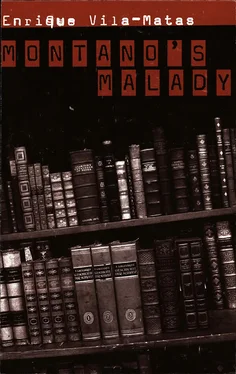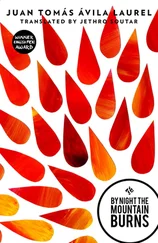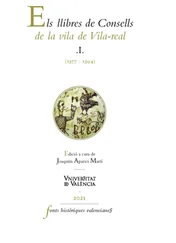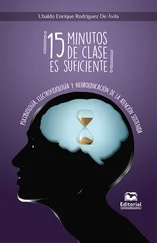Among other things, Vaché wrote to Breton, “You’ll think that I’ve disappeared, or that I’m dead, and one day you’ll find out that there’s a certain Vaché living a retired life in Normandy, occupied in the rearing of livestock, who can introduce you to his wife, an innocent, reasonably pretty girl, who won’t ever have realized the danger she’s been in. Only a few books (very few, you understand), carefully stored away upstairs, will testify that something has happened.”
The night now conjures up the memory of when I was tempted to abandon literary criticism for a while and to take a chance with a kind of anthology that would bring together the most interesting cases of youngsters who down through history have stood out by being seriously dangerous: youngsters among whom I planned to include Vaché and among whom today I would include Montano. Montano, by the way, physically — but no longer mentally — increasingly resembles Gérard Depardieu’s son, that young man who is an actor like his famous father and who destroys everything in his path and who, when asked about his future, recently declared that he was pleased to have reached the age of twenty-nine and still be alive.
I have always liked youngsters who pose a serious threat to conservative society, those who find the world stupid and for a time want to leave it soon. I was one of them and my son has managed to become one, something that, until he set up his bookshop in this city, he demonstrated clearly by trashing hotel rooms or risking his life in gratuitous drunken brawls or taking drugs in endless dissolute nights or spitting in the face of the powers he came across. I shouldn’t exactly admire him for this, but I behaved in a very similar way and it would be ignoble on my part not to feel an intimate sense of satisfaction at my poor son’s wild and suicidal boldness.
To tell the truth, the talent displayed by Montano — by the way, his full name is Miguel de Abriles Montano, but he prefers to call himself just Montano, in honor of his late mother — and his need until very recently to live dangerously have always been as great as his sudden mental fragility, which would explain his tragic inability to write following the risky enterprise of a book about writers who give up writing. I remember how much I smiled at his words shortly after he published his book: “I count on my father, as he counts on me, because I’m not the only one people say terrible things about.”
I smiled because he had copied these words from Depardieu’s son, whom he resembled at the time both physically and mentally. I smiled because the terrible things people said about Depardieu Senior were not the same things that were said about me, on account of my merciless reviews. And now I smile, thinking how much I would like one day, with Montano, to write that anthology of dangerous youngsters or else, it occurs to me now, the elegant chronicle of how social misfits end up sooner or later becoming more moderate, joining forces and creating art.
When I woke up, despite having slept for barely two hours, I felt well, as if two hours were enough. I was greatly surprised to be feeling in such good form and decided not to sleep anymore and to head outside. Since I had plenty of time before my appointment at my son’s bookshop, I went for a walk in Procé Park. Literature-sick as I am, I was unable to avoid a private tribute to André Breton, who wrote in Nadja that Nantes was, perhaps, together with Paris, “the only city in France where I have the impression that something worthwhile may happen to me, where certain glances burn with excessive fire, where for me the cadence of life is not the same as elsewhere, where a spirit of adventure beyond all adventures persists in certain souls. Nantes, from where friends may still arrive; Nantes, where I loved a park: Procé Park.”
I did not love Procé Park — it is not my style — but my sense of well-being grew at a time of morning when, given how little I had slept, the most logical reaction would have been to feel irritated, tired, or bad-tempered. I felt very well walking in the drizzle, protected by the red umbrella that Rosa gave me for the trip. I paid close attention to the few people I met during my walk in the park and thought that I would have liked to know their full names and even to love them deeply — I preferred this possibility to loving the park — and for each of them to die knowing that their name was on my lips. I paid close attention to their apparently unique faces and saw in their sunken eyes the fear of a senseless slaughter. I derived great enjoyment from this perverse game of loving and killing off strangers and imagining each individual’s death, as they commended me, in their passage to the other life, to their nearest and dearest. In short, I played at imagining that I was the absolute king in the land of love and death. In short, I traveled beyond all adventures, I went farther than poor Breton.
In the bookshop I found Montano relaxed and pleasant. As for Aline, she seemed happier than yesterday, at least she was smiling more. Everything appeared idyllic, but it cannot be said that things went well. Now that I analyze Montano’s behavior during all the time we spent together, I have to say that he was disconcerting, highly volatile, with noticeably pronounced mood swings. As if he were Hamlet. Whether or not he was actually trying to imitate the Prince of Denmark — I shall never know for sure — Montano behaved like a being in surprising and continual transformation. He passed through the following stages — at least — of Hamlet’s character: a) formal and polite; b) sensible, thoughtful, even intellectual; c) emotional and melancholic; d) despotic and mocking; e) pretending to be deranged, vindictive, even stark raving mad.
a) As soon as I entered the bookshop, Montano displayed extreme courtesy. Let us say he was strange, but agreeable. He bowed to me very low and very affectionately — imitating the greeting he gave me as a boy on the rare occasions that I deigned to go and fetch him from school — and handed me a French translation of Asparagus and the Immortality of the Soul , a novel by the Italian Achille Campanile, a master of humoristic literature.
“On presenting you with this book,” he said to me with exquisite, exaggerated, but agreeable politeness, very formal, “I should like to pay tribute to the most incorruptible Spanish critic of all time.”
I smiled and asked him not to joke or flatter me so much, but expressed my gratitude for the detail of giving me the French translation of a novel I had stoutly defended in my last essay — as I had defended its author, a writer unjustly ignored today — which showed that he had bothered to read this article of mine. “I couldn’t put it down,” he told me. And then he moved away to greet a customer. At this point Aline, as beautiful and fragile as she was last night, came up to me and, after asking if I was happy to have lunch at La Cigale, in reference to Montano’s current good mood, she whispered:
“He’s charming when he wants to be.”
b) In the rain, on the way to La Cigale, it occurred to me to talk to Montano about my literary illness , only about mine; needless to say, I did not wish to talk to him so soon about his illness, a delicate matter which I planned to touch on later with great tact. I talked to him about my illness because I thought it might help him to know that his father found literature stifling and desired to abandon it at the first opportunity that presented itself. I thought that talking to him about my disease might perhaps alleviate his own, while at the same time my confession would afford me some respite.
“I’m thinking,” he said to me in a sensible and very thoughtful tone, “that Walter Benjamin speculated about the possible relationship that exists between the art of storytelling and the healing of illnesses.”
Читать дальше












